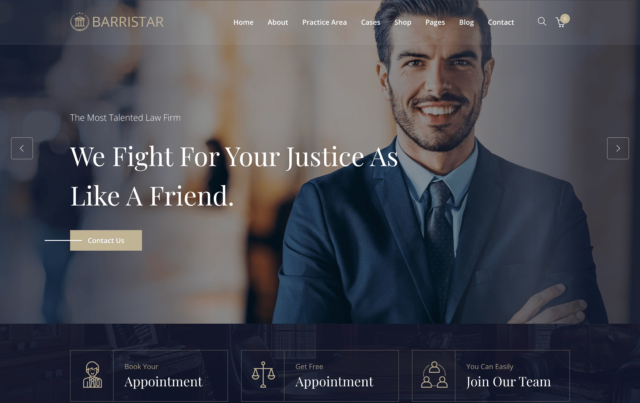Online reviews are a cornerstone of a law firm’s reputation and marketing strategy. They shape how potential clients perceive your practice and influence their decision-making process. However, the temptation to take shortcuts—such as paying for reviews—can lead to significant ethical and practical pitfalls. With Google cracking down on paid reviews and the potential for reputational damage, it’s clear that authenticity is the key to building trust and long-term success.
In this article, we’ll explore why paid reviews are not only unethical but also harmful to your marketing efforts, and we’ll provide actionable strategies for encouraging authentic feedback from your clients.
Why Paid Reviews Are a Bad Idea
Paid reviews may seem like a quick way to boost your online profile, but they come with significant risks:
- Violation of Ethical Guidelines: Many jurisdictions have strict rules governing attorney advertising. Paid reviews often violate these ethical guidelines, putting your practice at risk of disciplinary action.
- Damage to Credibility: Potential clients can often spot fake reviews, and if they suspect dishonesty, your reputation will suffer. Trust is one of the most critical factors in choosing an attorney, and paid reviews undermine that trust.
- Google’s Crackdown: Google and other platforms are increasingly sophisticated in identifying paid or inauthentic reviews. Firms caught using paid reviews may face penalties, including the removal of all reviews or even a reduction in search rankings. With this being harmful to your law firm’s SEO, it is imperative to not engage in these kinds of practices.
- Legal Risks: Engaging in deceptive practices, such as paying for reviews, can lead to legal challenges, especially if the reviews are found to be misleading.
The Benefits of Authentic Feedback
Genuine client reviews are powerful because they provide credible, firsthand insights into your practice. Authentic feedback builds trust, enhances your reputation, and improves your visibility in search rankings. Here are some benefits of focusing on authentic reviews:
- Trust and Transparency: Real reviews reflect genuine client experiences, helping potential clients feel more confident in your services.
- Improved SEO: Authentic reviews often contain relevant keywords that enhance your visibility in local search results.
- Constructive Insights: Honest feedback can help you identify areas for improvement and adapt to better meet your clients’ needs.
How to Encourage Authentic Reviews
Encouraging authentic feedback requires intentional effort and a commitment to client satisfaction. Here are some strategies to help you generate genuine reviews from your past clients:
1. Provide Outstanding Service
The foundation of authentic reviews is exceptional service. When clients feel valued and satisfied with your legal expertise, they’re more likely to leave positive feedback. Ensure every client receives personalized attention, clear communication, and strong advocacy.
2. Ask at the Right Time
Timing is key when requesting reviews. The best time to ask is shortly after you’ve successfully resolved a case or provided a positive outcome. Clients are more likely to leave a review when their experience with you is fresh in their minds.
3. Make It Easy
Simplify the review process by providing clear instructions. Share direct links to your Google Business Profile, Yelp page, or other review platforms. Consider including a step-by-step guide in a follow-up email or on your website.
4. Use a Gentle, Personalized Approach
When asking for reviews, be genuine and respectful. For example, you might say:
- “It was a pleasure working with you on your case. If you have a moment, we’d greatly appreciate it if you could share your experience on Google to help others who may need similar legal services.”
5. Follow Up Without Pressuring
If a client hasn’t left a review after your initial request, send a polite follow-up. Ensure the tone remains non-intrusive. For example:
- “We hope you’re doing well. Just a quick reminder that if you’d like to share your feedback, here’s the link to leave a review. Your input helps us improve and helps others make informed decisions.”
6. Leverage Testimonials and Surveys
Sometimes, clients are hesitant to leave public reviews but may be willing to share their feedback privately. Use surveys to gather testimonials and, with their permission, feature their words on your website.
7. Respond to All Reviews
Demonstrate your engagement by responding to reviews, whether positive or negative. Acknowledging positive feedback shows appreciation, while addressing negative feedback demonstrates accountability and a willingness to improve.
8. Educate Clients on the Value of Reviews
Help clients understand the impact of their reviews. Explain how their feedback can guide others in similar situations to make informed decisions.
9. Avoid Incentives
While offering incentives may seem like a harmless way to encourage reviews, it can easily cross ethical lines. Instead, focus on creating a positive client experience that naturally inspires feedback.
What to Do About Negative Reviews
Negative reviews are inevitable, but they’re also an opportunity to showcase your professionalism. Respond calmly, address the concern if possible, and demonstrate your commitment to resolving issues. Avoid engaging in arguments or defensive behavior, as this can further damage your reputation.
Final Thoughts
The ethics of paid reviews are clear: they’re not worth the risk. Authentic feedback, on the other hand, is a valuable asset that strengthens your reputation, builds trust, and enhances your marketing efforts. By prioritizing client satisfaction and using transparent, respectful strategies to encourage reviews, your law firm can cultivate a credible online presence that resonates with potential clients. You can also read up on the advertising rules for your state so you can understand further about paid reviews.
Focus on doing great work, asking for honest feedback, and building relationships based on trust. In the long run, these efforts will pay dividends in the form of a thriving practice and a stellar reputation.








